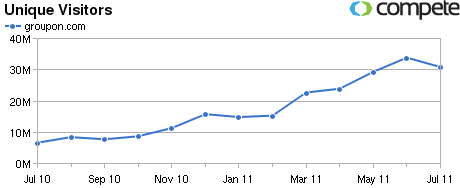August 24, 2011 | In: General
Is the Swiss Franc Overvalued?
In these crazy, crazy days, where many investors are thinking that the world is finally coming to an end, and where a lot of forex traders are thinking that the USD (and soon the EURO) is worth a bit more than the paper it’s being printed on, we are witnessing massive exodus to the so called safe haven currencies.
These safe have currencies are: The Canadian Dollar, the Japanese Yen, and the Swiss Franc. Investors that think that the previous 3 currencies are safe haven currencies, should think again, because most likely they’re following the masses who are apparently ignoring that the whole world is interconnected, and that these currencies are still, paper currencies.
Let me talk about the Canadian Dollar and the Japanese Yen before discussing the Swiss Franc…
The Canadian Dollar is currently priced based on the price of commodities, especially Gold and Oil, that are abundant in Canada. However, we know that the Canadian Dollar should be priced based on the strength of the Canadian economy, which is mostly tied to the under-performing US economy. Is the loonie overvalued? I think it is, but not by much. I’d say the loonie is overvalued by a maximum of 15% – 20%.
The Japanese Yen is tied to the Japanese economy, which is also strongly tied (but not as much as the Canadian economy) to the US economy. The Japanese Yen should be priced upon the strength and the continuity and the expansion of the Japanese economy, and not by investor speculation (as it is today). I think the real value of the Japanese Yen is much lower than it is priced at at them moment, and here’s a day-to-day example why… Toyota, for example, knows that the cost of each Toyota Highlander car is JPY 300,000. When the yen was trading at a 100 (in other words, each JPY 100 = $ 1), that amount was $30,000. The car was sold for $40,000 in the US for a profit of $10,000/car. Today, the JPY 300,000 are $39,473 (at the current price of 76), which means that Toyota’s profit is only about $500 for that car. GM and Ford, on the other hand, can still sell their equivalent models for $40,000 at a huge profit. Every company in Japan has the same problem when it comes to exports to the US and the rest of the world. Is the Japanese Yen fairly priced? I think not. I think it’s overpriced by at least 25%, and we should see a retreat either end of this year or next year.
Now let’s discuss the Swiss Franc, the powerful Swiss Franc and all the misconceptions about it, by asking and answering the following questions:
– Is the Swiss Franc backed by gold? The Swiss Franc was 40% backed by gold until the Swiss government sold all the gold back in 2005 following a referendum held 5 years earlier (in 2000) to drop the gold backing of the Swiss Franc. There is a huge misconception that the Swiss Franc is still backed by gold!
– Is the Swiss economy indifferent to the US and the European economies? Of course (add sarcasm here), it is indifferent. Switzerland is an island nation, bordered by an ocean from all sides. It has nothing to do with Europe or the US economies, it’s not that the majority of bank accounts in Switzerland are held by Americans or Europeans. It’s not that the Swiss banks have very strong ties to European and American banks. Apparently nobody is able to see this.
– Is the Swiss economy shielded from the European crisis? No it’s not, at all, in fact, it is heavily involved. All major Swiss banks and businesses have financial interests/investments in Europe, and all of them are affected by what’s happening there.
– Is the Swiss economy powered by things other than the financial services? Yes (again more sarcasm), Switzerland exports good quality chocolate (like the ones you buy at the airport for your significant other), beautiful watches, and, of course, Swiss knives. All three industries generate trillions of dollars (ok, enough sarcasm) to the Swiss economy.
– What is the real value of the Swiss Franc? Certainly not 0.78 for the USD. Of all the 3 currencies I mentioned in this article the Swiss Franc is the most overvalued one, at least by 30%, which means that the real value of the Swiss Franc should be 1.11.
This article (as well as all other articles on this website) is an intellectual property and copyright of Fadi El-Eter and can only appear on fadi.el-eter.com.
